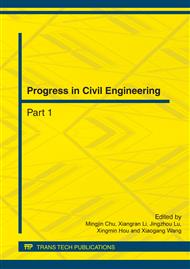p.1977
p.1983
p.1987
p.1991
p.1996
p.2000
p.2004
p.2008
p.2013
The Study on Water Conservancy Project Control System
Abstract:
This paper puts the theory of Multi-Agent into control automation, setting up a Automatic Control System of Water Conservancy Project Model based on Multi-Agent, applying Multi-Agent theory to Automatic Control System of Water Conservancy Project Model Test, and coordinating and solving a great deal of problems that exists in Automatic Control System at present through the communication among a lot of Agents, which will offer very important basis and advanced scientific means for Water Conservancy Project Model Test implementing intellectual control of real meaning.
Info:
Periodical:
Pages:
1996-1999
Citation:
Online since:
May 2012
Authors:
Price:
Сopyright:
© 2012 Trans Tech Publications Ltd. All Rights Reserved
Share:
Citation:


